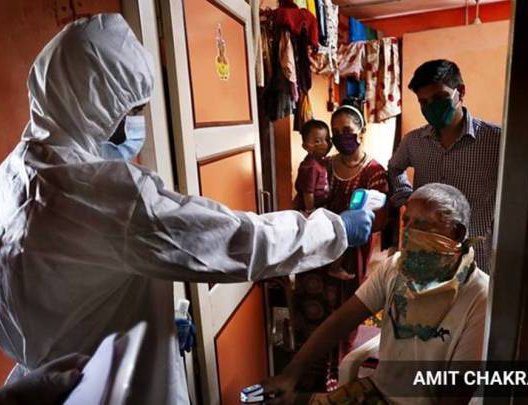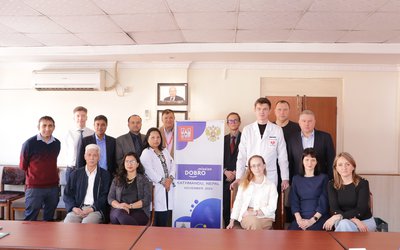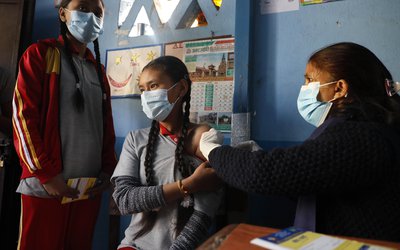
There are over 21.5 million confirmed COVID-19 cases globally, with over 773,000 fatalities and more than 13.5 million recoveries, according to the latest tally from Johns Hopkins University.
The U.S. has seen over 5.4 million infections and more than 170,000 deaths – both numbers are the highest in the world.
New Zealand PM Jacinda Ardern has postponed by one month the country's election, originally set for September 19 to October 17, due to the resurgence of new virus cases in the nation.
Several European countries, including the UK, Spain and Italy are retightening coronavirus measures including entry rules and more nationwide restrictions on business operations.
U.S. COVID-19 deaths have surpassed the 170,000 mark, according to the Center for Systems Science and Engineering at Johns Hopkins University.
The total number of cases in the U.S. exceeded 5.4 million on Sunday. The U.S. remains the worst-hit nation in both its caseload and death toll.
California, Florida, Texas and New York are among the hardest-hit U.S. states in the pandemic.
Brazil on Sunday registered 620 new deaths and 23,101 new cases of coronavirus. In total, the country now has 3,340,197 confirmed cases and 107,852 deaths due to COVID-19. President Jair Bolsonaro's wife has tested negative for COVID-19 after roughly two weeks of treatment while earlier his youngest son, Jair Renan, said he had tested positive.
Italy is to shut discos and clubs and make mask-wearing outdoors compulsory in some areas during the nighttime from Monday in the first reimposition of restrictions as cases of coronavirus pick up across the country.
According to Simon Kolstoe, senior lecturer at the School of Health and Care Professions at the UK's University of Portsmouth, part of the confusion around face masks is that authorities weren't clear enough from the start about why we need them.
"Towards the beginning of the coronavirus pandemic there was obviously this big concern about protecting medical staff in hospitals and ensuring there was appropriate PPE or personal protective equipment available for medical staff," he explains. "So there was a lot of concern to avoid the public panic-buying face masks."
But the argument for people to wear face masks isn't about protecting themselves, but about preventing patients who might be asymptomatic from spreading the virus to other people.
"Tests have shown that when you breathe, that when you blow, your breath goes about a meter, two meters away from your body. This is one of the rationales behind the two-meter physical distancing.
"However, obviously, if you wear something over your face, you have a breath-diverting device, a mask diverting your breath, you're pushing your breath over the body at the top of your head and thus if you are asymptomatic and you do have coronavirus, you're not spreading the virus particles as far."
With so many different type of face masks on sale, the market might be difficult to navigate. But Kolstoe has a foolproof method of testing the efficiency of face masks.
"One really good way of testing a face mask, to find out how effective it is at actually diverting your breath, is to simply light a match and then try to blow out the match through the face mask," he says.
We tested this with nine different type of face masks, and Kolstoe found N95 masks were the best for efficiency and fit. Your average dust mask, though it fits very comfortably, isn't very robust and efficient in diverting your breath.
Other things to look for are a tight fit (possibly with a metal wire nose clip), a robust fabric and possibly multiple layers of protection, and when present, look for a stamp of approval by a significant authority – for example in the EU, the ones CE marked in accordance with the essential requirements of Directive 93/42/EEC on medical devices.
Despite several tests proving the importance of face masks in preventing the spread of the virus, there is still a lot of resistance in Europe to wearing them.
Kolstoe thinks it depends on the way we traditionally interact with each other and the way we read emotions in other people. "There was a paper published a few years ago that showed that people in Western cultures tend to look at the mouth when they're trying to interpret emotions," he says.
"If you're trying to see if someone is happy, you might look to see if they're smiling or angry from the shape of the mouth, whilst people in more eastern countries tend to look at the eyes to look at emotion as well.
"And therefore, it seems to make sense that in cultures that are more used to looking at the mouth when they're looking at other people, they might have more resistance to wearing a face mask compared to other cultures that might interpret emotions through the eyes."
A total of 294,237 people have tested positive for COVID-19 worldwide within 24 hours, the highest daily increase since the coronavirus pandemic began, according to a report released on Saturday by the World Health Organization.
Meanwhile, more than 30 countries have reported over 1,000 daily COVID-19 cases, according to the report.
Global COVID-19 cases topped 21.4 million as of Sunday, according to the latest tally from Johns Hopkins University.
- India Begins 'World's Largest General Election'
- Apr 19, 2024
- Finance Minister Pun World Bank For More Investment In Nepal
- Apr 18, 2024
- Everest Climbing Route Will Be Open Soon For Coming Session
- Apr 18, 2024
- India Is Set To Begin Six Week Long General Elections From Friday
- Apr 18, 2024
- Netanyahu Meets British, German FMs, Stresses Israel's Right To Self-Defense
- Apr 18, 2024
















